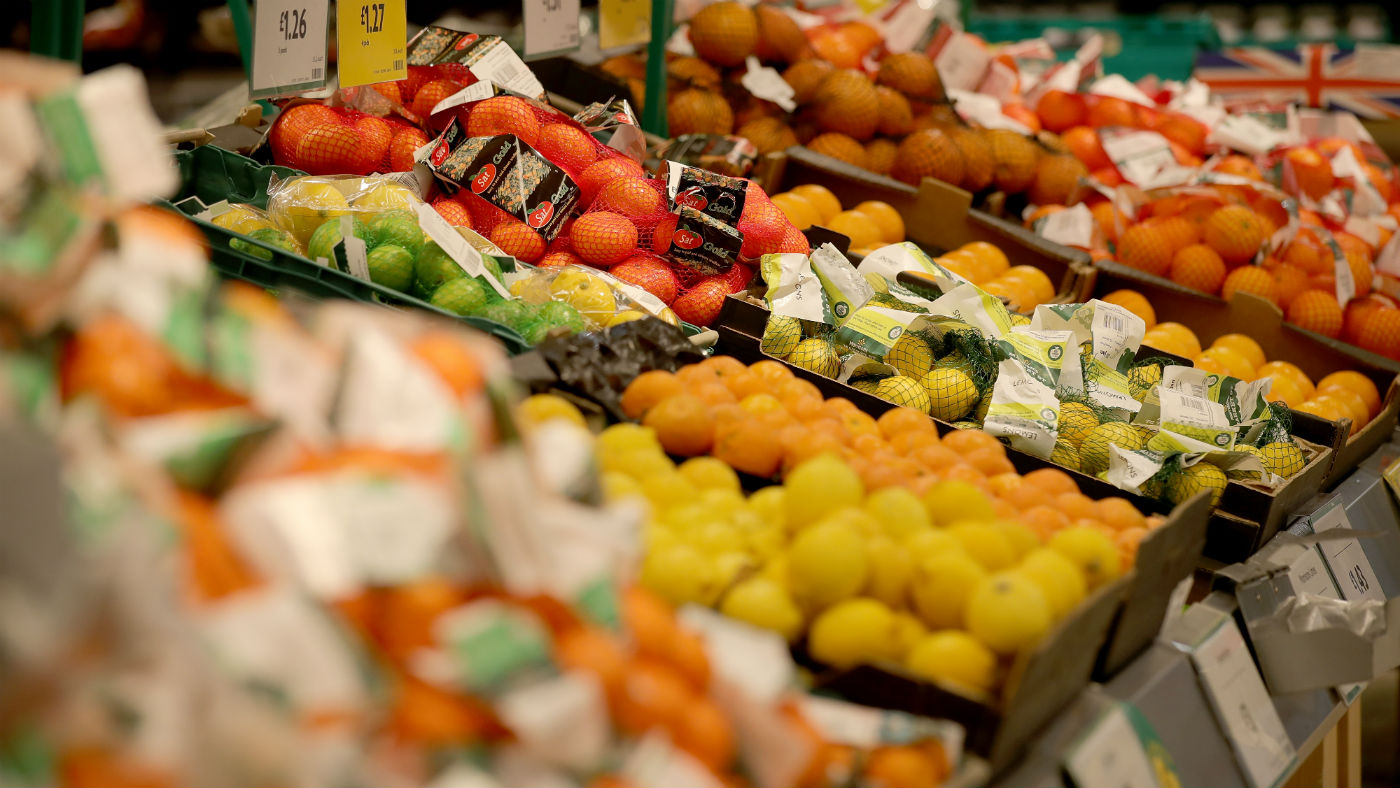Harvard says vegetarian diet could prevent one in three early deaths
The benefits of a vegetarian diet have been vastly underestimated, experts concluded

A free daily email with the biggest news stories of the day – and the best features from TheWeek.com
You are now subscribed
Your newsletter sign-up was successful
A third of all early deaths could be prevented by a vegetarian diet, according to a new scientific study.
The researchers at Harvard say their new findings indicate that people are vastly underestimating the benefits of a plant-based diet, according to The Daily Telegraph.
For example, while recent figures from the Office for National Statistics suggested that 141,000 deaths a year in Britain were preventable, the new research from Harvard has produced a much higher figure: about 200,000 lives could be saved each year in the UK if people removed meat from their diets.
The Week
Escape your echo chamber. Get the facts behind the news, plus analysis from multiple perspectives.

Sign up for The Week's Free Newsletters
From our morning news briefing to a weekly Good News Newsletter, get the best of The Week delivered directly to your inbox.
From our morning news briefing to a weekly Good News Newsletter, get the best of The Week delivered directly to your inbox.
The findings were presented at the Unite to Cure Fourth International Vatican Conference in Vatican City this week by lead researcher Dr Walter Willett, professor of epidemiology and nutrition at Harvard Medical School.
Willett told the conference: “We have just been doing some calculations looking at the question of how much could we reduce mortality shifting towards a healthy, more plant-based diet, not necessarily totally vegan, and our estimates are about one third of early deaths could be prevented.”
“That’s not even talking about physical activity or not smoking, and that’s all deaths, not just cancer deaths. That’s probably an underestimate as well as that doesn’t take into account the fact that obesity is important and we control for obesity,” he added.
British Professor David Jenkins, of the University of Toronto, who developed the glycemic index which helps explain how carbohydrates impact blood sugar, also told the conference that the benefits of vegetarianism had been “undersold”.
A free daily email with the biggest news stories of the day – and the best features from TheWeek.com
Jenkins said humans would do better following a “simian” diet, similar to lowland gorillas who eat stems, leaves, vines and fruits rather than a “paleo” or caveman diet, which cuts carbohydrates but allows meat.
The Daily Mail cites a recent study by the University of Toronto which found that “a vegetarian diet could actually reverse certain health problems by the same margins as commonly used medications called statins”.
In the UK around 17.5 million people are eligible for statins to stave off heart disease, equating to most men over 60 and most women over 65. But “many complain of side effects and stop taking the drugs”, says the Telegraph.
Dr Jenkins added: “We’re saying you’ve got a choice, you can change your diet to therapeutically meaningful change or you can take a statin. Drug or diet.”
-
 The ‘ravenous’ demand for Cornish minerals
The ‘ravenous’ demand for Cornish mineralsUnder the Radar Growing need for critical minerals to power tech has intensified ‘appetite’ for lithium, which could be a ‘huge boon’ for local economy
-
 Why are election experts taking Trump’s midterm threats seriously?
Why are election experts taking Trump’s midterm threats seriously?IN THE SPOTLIGHT As the president muses about polling place deployments and a centralized electoral system aimed at one-party control, lawmakers are taking this administration at its word
-
 ‘Restaurateurs have become millionaires’
‘Restaurateurs have become millionaires’Instant Opinion Opinion, comment and editorials of the day
-
 Epstein files topple law CEO, roil UK government
Epstein files topple law CEO, roil UK governmentSpeed Read Peter Mandelson, Britain’s former ambassador to the US, is caught up in the scandal
-
 Iran and US prepare to meet after skirmishes
Iran and US prepare to meet after skirmishesSpeed Read The incident comes amid heightened tensions in the Middle East
-
 Israel retrieves final hostage’s body from Gaza
Israel retrieves final hostage’s body from GazaSpeed Read The 24-year-old police officer was killed during the initial Hamas attack
-
 China’s Xi targets top general in growing purge
China’s Xi targets top general in growing purgeSpeed Read Zhang Youxia is being investigated over ‘grave violations’ of the law
-
 Panama and Canada are negotiating over a crucial copper mine
Panama and Canada are negotiating over a crucial copper mineIn the Spotlight Panama is set to make a final decision on the mine this summer
-
 Why Greenland’s natural resources are nearly impossible to mine
Why Greenland’s natural resources are nearly impossible to mineThe Explainer The country’s natural landscape makes the task extremely difficult
-
 Iran cuts internet as protests escalate
Iran cuts internet as protests escalateSpeed Reada Government buildings across the country have been set on fire
-
 US nabs ‘shadow’ tanker claimed by Russia
US nabs ‘shadow’ tanker claimed by RussiaSpeed Read The ship was one of two vessels seized by the US military